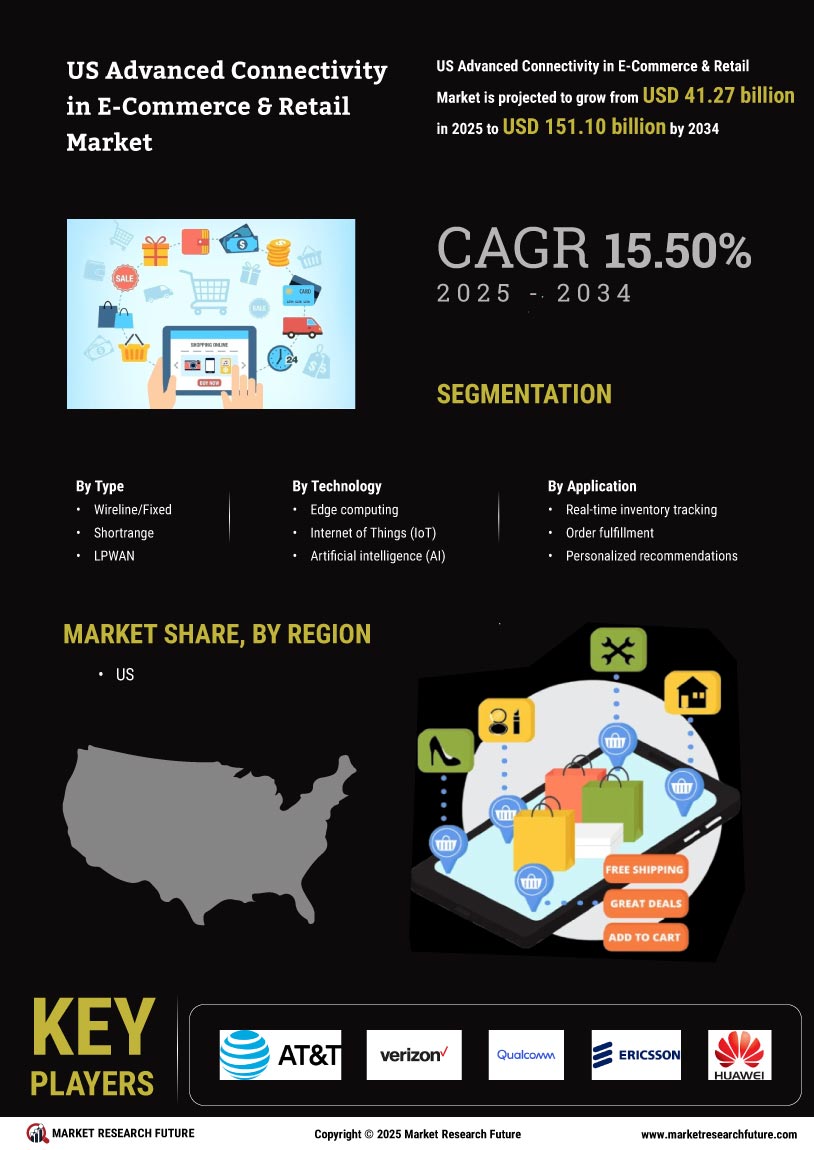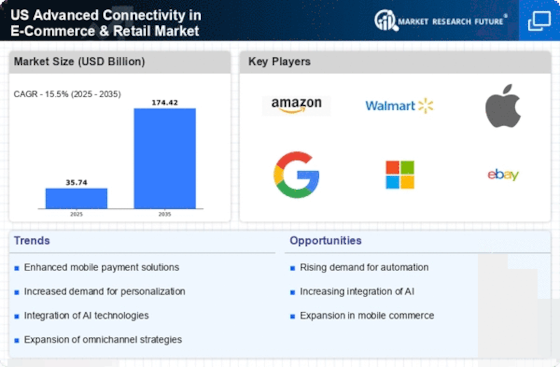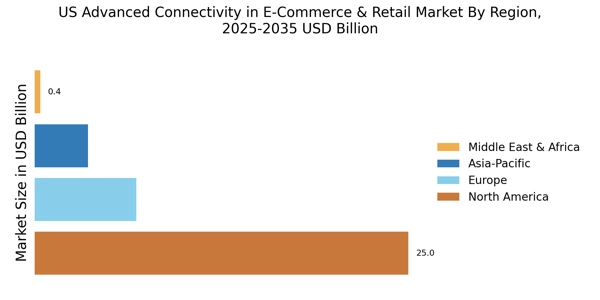Mobile Commerce Growth
The proliferation of smartphones has significantly impacted the US Advanced Connectivity In E Commerce And Retail Market, with mobile commerce projected to account for over 50 percent of total e-commerce sales by 2026. This shift towards mobile shopping necessitates that retailers adopt mobile-friendly platforms and payment solutions to cater to the evolving preferences of consumers. As mobile connectivity improves, retailers are increasingly leveraging mobile applications and responsive websites to enhance user experience. The convenience of shopping on-the-go is driving consumer engagement, leading to higher conversion rates. Retailers that prioritize mobile connectivity are likely to gain a competitive edge in the market, as they can effectively reach and retain customers who prefer mobile transactions.
Expansion of 5G Technology
The rollout of 5G technology is poised to revolutionize the US Advanced Connectivity In E Commerce And Retail Market. With its promise of faster data speeds and lower latency, 5G enables retailers to offer enhanced online shopping experiences, including high-definition video streaming and augmented reality applications. This technological advancement is likely to attract more consumers to online platforms, as it allows for richer, more interactive content. The Federal Communications Commission has emphasized the importance of 5G in driving economic growth, particularly in the retail sector. As 5G networks become more widespread, retailers are expected to invest in advanced connectivity solutions that leverage this technology, ultimately leading to increased sales and customer engagement.
Increased Internet Penetration
The US Advanced Connectivity In E Commerce And Retail Market is experiencing a surge in internet penetration, with over 90 percent of the population now having access to high-speed internet. This widespread connectivity facilitates seamless online shopping experiences, enabling consumers to browse and purchase products with ease. As more consumers engage in e-commerce, retailers are compelled to enhance their digital platforms to meet growing demand. The National Telecommunications and Information Administration reports that internet access has become a critical driver for e-commerce growth, as it allows retailers to reach a broader audience. Consequently, businesses are investing in advanced connectivity solutions to optimize their online presence, thereby driving sales and improving customer satisfaction.
Focus on Cybersecurity Measures
As the US Advanced Connectivity In E Commerce And Retail Market expands, the importance of robust cybersecurity measures cannot be overstated. With the rise in online transactions, retailers face heightened risks of data breaches and cyberattacks. Consequently, businesses are increasingly prioritizing cybersecurity investments to protect sensitive customer information and maintain consumer trust. According to the Cybersecurity and Infrastructure Security Agency, the retail sector has seen a 30 percent increase in cyber threats in recent years. Retailers that implement advanced cybersecurity protocols not only safeguard their operations but also enhance their reputation in the market. This focus on security is likely to drive consumer confidence, encouraging more individuals to engage in e-commerce activities.
Integration of Artificial Intelligence
The integration of artificial intelligence (AI) technologies is transforming the US Advanced Connectivity In E Commerce And Retail Market. AI-driven solutions enable retailers to analyze consumer behavior, optimize inventory management, and personalize marketing strategies. According to recent studies, businesses utilizing AI in their operations have reported a 20 percent increase in sales. This technology enhances connectivity by providing real-time insights into customer preferences, allowing retailers to tailor their offerings accordingly. Furthermore, AI-powered chatbots and virtual assistants improve customer service by providing instant support, thereby enhancing the overall shopping experience. As AI continues to evolve, its role in shaping the future of e-commerce connectivity is expected to grow, making it a crucial driver in the industry.


















